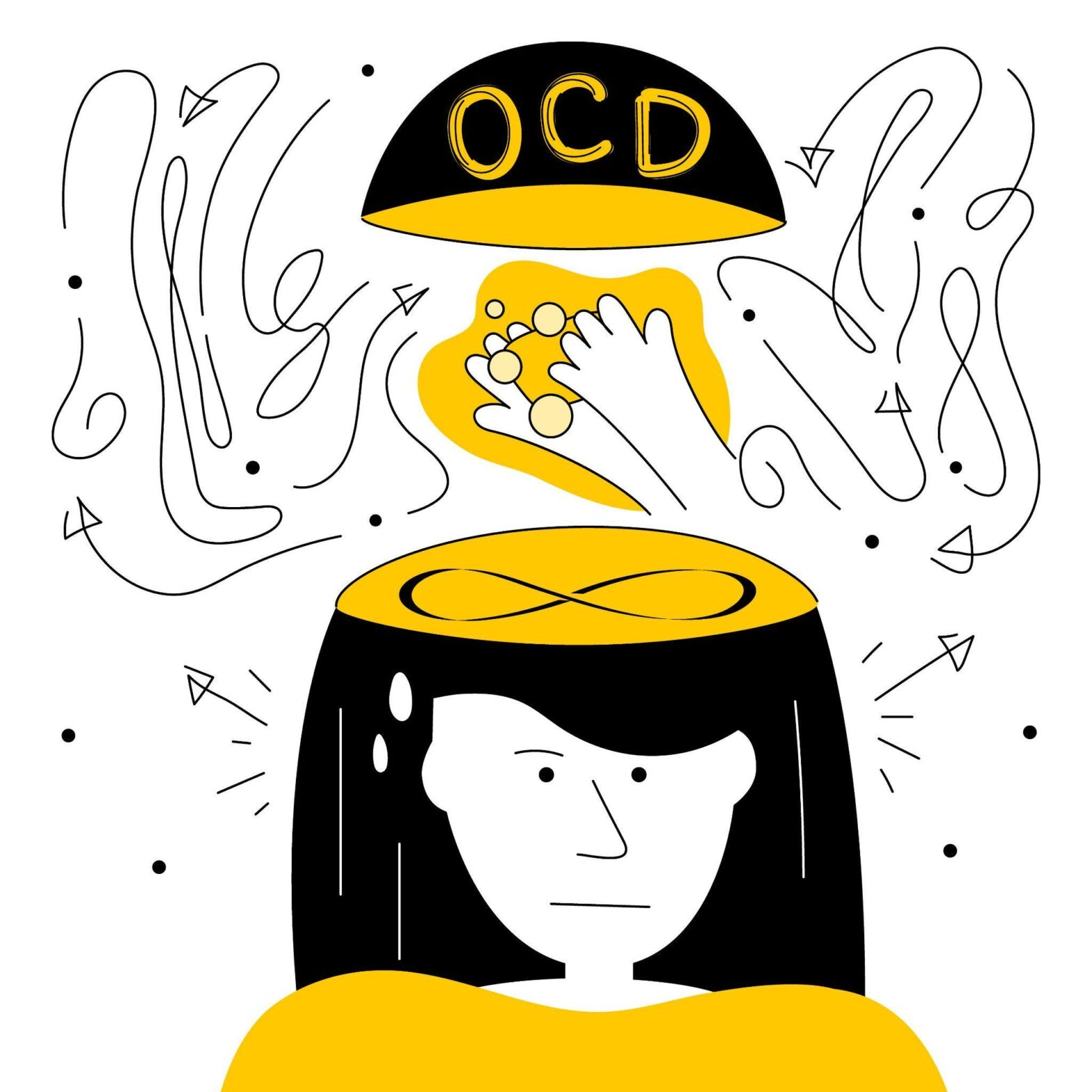What is OCD?

Obsessive-Compulsive Disorder (OCD) is a mental health disorder that affects people of all ages and walks of life. It’s marked by recurring, unwanted thoughts, images, or impulses (obsessions) and repetitive behaviours or mental acts (compulsions) that the individual feels obliged to perform. It’s like having a broken record in your mind or feeling compelled to do certain rituals to ease anxiety. These symptoms can interfere with daily activities, relationships, and overall quality of life.
Understanding Obsessions:
Obsessions are intrusive and unwanted thoughts, images, or urges that trigger intensely distressing feelings. People with OCD may try to ignore or suppress these obsessions or neutralize them with another thought or action (compulsion).
Common examples include:
- Fear of germs or contamination.
- Unwanted taboo thoughts involving sex, religion, or harm.
- Aggressive thoughts towards others or self.
- Need for things to be symmetrical or in perfect order.
Understanding Compulsions:
Compulsions are repetitive behaviours or mental acts that a person feels driven to perform in response to an obsession or according to rigidly applied rules. These behaviours are meant to reduce anxiety related to obsessions or prevent something bad from happening, but they’re not connected in a realistic way with what they’re designed to neutralise.

Common examples include:
- Excessive cleaning or handwashing.
- Ordering and arranging things in a particular, precise way.
- Repeatedly checking on things, such as repeatedly checking to see if the door is locked, or the oven is off.
- Compulsive counting.
Impact on Life:
OCD can be paralysing. The ritualistic behaviours can consume hours of a person’s day, impacting their ability to function in their personal, social, or work life. Relationships can be strained, and social isolation may occur. Living with OCD can be isolating and stressful.
Causes and Risk Factors:
While the precise cause of OCD is unknown, various factors contribute to its development:
- Genetics: Family history plays a role; individuals with first-degree relatives who have OCD are at a higher risk.
- Brain Structure and Function: Imaging studies have shown differences in the frontal cortex and subcortical structures of the brain in individuals with OCD.
- Environmental Factors: Traumatic or stressful events might trigger OCD in those with a predisposition to the disorder.
Treatment:
Effective treatment for OCD typically involves a combination of cognitive-behavioural therapy (CBT) and medication.
- Cognitive-Behavioural Therapy (CBT): Specifically, Exposure and Response Prevention (ERP) is considered the most effective form of CBT for OCD. This involves exposing the person to the source of their anxiety (the obsession) and then teaching them to refrain from the compulsive behaviour (response prevention).
- Medication: Antidepressants, particularly those known as selective serotonin reuptake inhibitors (SSRIs), are commonly used to help control the obsessions and compulsions of OCD.
Management and Support:
Living with OCD requires ongoing management. Individuals can learn strategies to cope with their symptoms, reduce the impact on their daily life, and improve their quality of life.
Support (emotional and practical) from family, friends, peers, support workers can be invaluable and provide a sense of belonging and acceptance. It helps individuals feel understood and less alone with their struggles, reducing feelings of shame or stigma associated with their symptoms.
The journey through OCD treatment can be challenging and fraught with ups and downs. Supportive individuals can play a key role in motivating and encouraging persistence in treatment, even when progress seems slow or difficult.
Conclusion:
OCD is a challenging disorder, but with the right treatment and strategies, individuals can regain control over their symptoms and lead fulfilling lives. Awareness and understanding are key to supporting those affected by OCD.
What is OCD (for kids?)
Imagine your brain is like a quirky, overly zealous security guard who takes their job way too seriously. This guard, let’s call them “Ollie the Overthinker,” is always on high alert, even when everything is perfectly fine. Ollie constantly checks the locks, washes the windows (even if they’re already sparkling clean), and arranges everything in a very, very specific order—just in case.
Now, in the world of our minds, OCD (Obsessive-Compulsive Disorder) is like having Ollie in charge. Ollie obsesses over thoughts (these are the “obsessions”)—like imagining that the door isn’t locked, even when it’s been checked five times. To ease these relentless worries, Ollie compulsively performs actions (these are the “compulsions”)—like checking that door another five times, just to be extra, extra sure.
It’s as if Ollie’s motto is “Better safe than sorry,” taken to an extreme. Except, instead of helping, Ollie’s over-the-top diligence can make things pretty challenging, turning everyday tasks into time-consuming rituals.
So, OCD is like your brain’s security system going into overdrive, where Ollie keeps hitting the alarm button, sending you on repeated rounds of checks and balances, even when you’d much rather be chilling out or doing literally anything else.
But remember, just as a too-eager security guard can learn to chill and find balance, people with OCD, with the right support and strategies, can also find ways to manage Ollie’s overenthusiastic habits, leading a harmonious life with their inner security guard.









